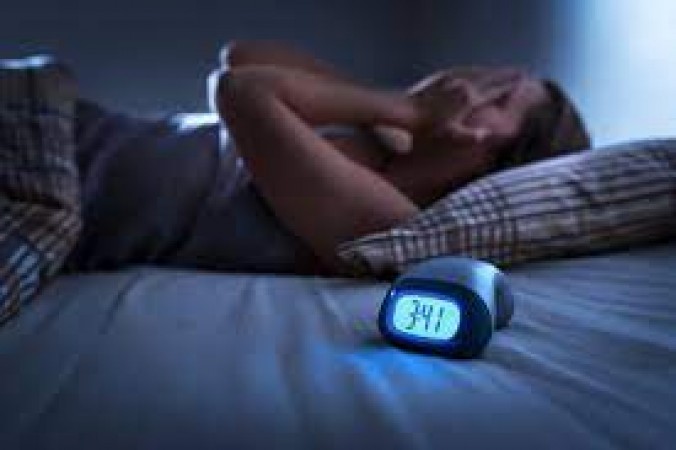
In the relentless pace of contemporary life, many individuals find themselves staying awake into the wee hours. But what truly transpires within your mind after a sleepless night? Let's delve into the intricate effects that unfold when the body is deprived of its essential rest.
The ramifications of a night without sleep extend beyond mere fatigue. When you deprive your brain of the rest it craves, it responds by going into overdrive, affecting various cognitive functions. This heightened state can have both immediate and long-term consequences.
One of the most immediate impacts of sleep deprivation is the impairment of cognitive functions. Memory, attention, and decision-making skills all suffer, resulting in a noticeable decrease in mental sharpness. The foggy feeling that accompanies sleeplessness is, in part, a consequence of these cognitive lapses. Understanding how lack of sleep directly influences these cognitive processes is crucial. Research suggests that sleep is essential for memory consolidation, the process where short-term memories are transformed into long-term ones. Without sufficient sleep, this consolidation process is disrupted, leading to memory lapses and decreased attention spans.
Sleep deprivation doesn't merely mess with your mind; it plays havoc with your emotions. Understanding this rollercoaster ride is crucial to navigating the challenging terrain of a sleepless night.
The emotional toll of sleep deprivation is significant. Your emotions become more volatile, with heightened reactions to both positive and negative stimuli. This emotional turbulence can strain relationships, impair decision-making, and negatively impact your overall well-being. Researchers have found a strong link between sleep deprivation and emotional reactivity. The amygdala, a part of the brain involved in processing emotions, becomes hyperactive when sleep-deprived. This heightened activity amplifies emotional responses, making situations that would typically be manageable more challenging to navigate.
While you're tossing and turning through the night, your body's hormonal balance undergoes significant changes. These changes contribute to various physiological and psychological effects, influencing everything from stress levels to appetite.
One notable change during sleep deprivation is the release of stress hormones, particularly cortisol. Lack of sleep triggers a heightened stress response, contributing to increased levels of cortisol circulating in the body. The relationship between sleep and stress is bidirectional. Elevated stress levels can contribute to difficulty falling asleep, creating a vicious cycle. Managing stress through techniques such as mindfulness, meditation, or deep breathing exercises becomes crucial for breaking this cycle and improving sleep quality.
As the night wears on, your mental landscape becomes increasingly foggy. Understanding this fog is key to navigating the challenges that follow a sleepless night.
Concentration becomes a luxury after a sleepless night. The foggy mental state makes it challenging to focus on tasks that require sustained attention. This can have profound implications on productivity, decision-making, and overall cognitive performance. The impact on concentration is multifaceted. Sleep deprivation not only impairs attention and focus but also diminishes the brain's ability to filter out irrelevant information. This leads to a cognitive overload, making it difficult to prioritize and complete tasks efficiently.
Understanding the effects of sleep deprivation is crucial, but finding a remedy is equally important. The key lies in embracing the value of quality sleep and adopting habits that promote restorative rest.
Creating a conducive sleep environment, adhering to a consistent sleep schedule, and practicing relaxation techniques are vital steps toward ensuring rejuvenating sleep. The concept of sleep hygiene encompasses various practices that contribute to a good night's sleep.
Adequate exposure to natural light during the day, limiting caffeine and electronic device use before bedtime, and maintaining a comfortable sleep environment are all components of effective sleep hygiene. These practices help regulate the body's internal clock, making it easier to fall asleep and wake up feeling refreshed.
The morning after a sleepless night often poses challenges, but with strategic approaches, you can navigate the day more effectively.
Incorporating short naps, staying hydrated, and engaging in light physical activity can help combat drowsiness and enhance alertness during the day. While these strategies may provide a temporary boost, they do not replace the need for a good night's sleep.
Napping, when done strategically, can mitigate some of the effects of sleep deprivation. Short power naps of around 20 minutes can help improve alertness and performance without interfering with nighttime sleep. However, longer naps or those taken too late in the day can disrupt the sleep-wake cycle.
Understanding the potential long-term consequences of chronic sleep deprivation is essential for prioritizing adequate rest in our lives.
Persistent sleep deprivation is linked to cognitive decline and an increased risk of mental health issues. The brain requires sleep to perform essential functions, including clearing out toxins that accumulate during waking hours. Chronic sleep deprivation deprives the brain of this crucial maintenance, contributing to long-term cognitive decline.
Additionally, the risk of mental health conditions such as depression and anxiety increases with persistent sleep deprivation. The intricate relationship between sleep and mental health underscores the importance of prioritizing sleep as a fundamental aspect of overall well-being.
In conclusion, the aftermath of a sleepless night goes beyond mere tiredness. It intricately weaves through cognitive, emotional, and physiological realms, underscoring the importance of quality sleep in nurturing a healthy mind. Understanding the impact of sleep deprivation on cognitive functions, emotions, hormonal balance, and long-term well-being emphasizes the need to prioritize and protect our sleep. By acknowledging the value of restorative rest and adopting healthy sleep habits, we can cultivate a foundation for a vibrant and resilient mind. Remember, the next time you contemplate burning the midnight oil, your mind might be paying a higher price than you realize.
Farooq Pathan Goes Absconding After Attempted Beheading of Hindu Woman
A little dispute and the husband killed his wife
There was a fierce dispute between the Damas and the villagers... Shot and 9-year-old child killed